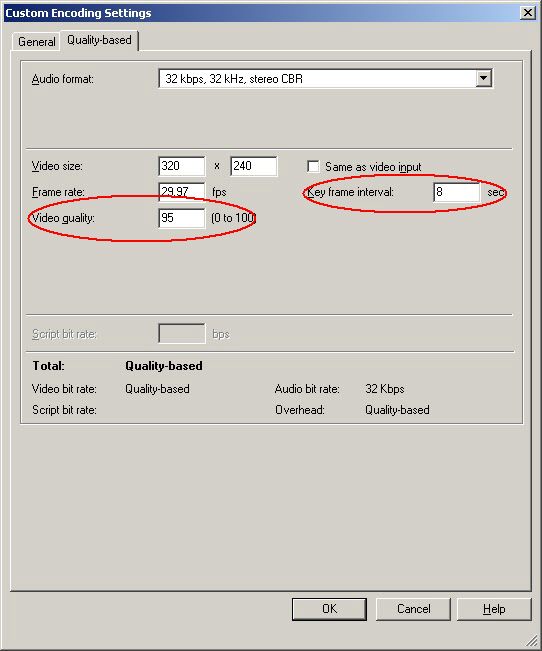LEAD H.264 Encoder (DMO) (4.0)
The LEAD H264 Encoder (DMO) is a DirectX Media Object (DMO) filter for compressing video data using the H.264/AVC standard. The H.264 standard is the latest video standard developed jointly by ITU and MPEG. The H.264/AVC standard provides a far more efficient algorithm for compressing video. It typically outperforms all existing standards by a factor of three to four especially in comparison to MPEG-2.
H264 is a high quality video compression algorithm suited for all types of applications with different ranges of bit rates. The compressed video data can be stored inside AVI or OGG files with the option of saving the file with or without the audio data.
The compression options for the Encoder can be set manually through the encoder property page. The compression options can also be set programmatically using the filter interface.

The encoding options for the LEAD H264 Encoder Filter (DMO) and LEAD H264 Encoder Filter Advanced (DMO) are the same as the encoding options for the LEAD H264 Encoder (a DirectShow® filter), except for the super compression option which is:
-
Always OFF for LEAD H264 Encoder Filter (DMO)
-
Always ON for LEAD H264 Encoder Filter Advanced (DMO)
These codecs are designed to work with the Microsoft Windows Media Encoder program. This is part of the Windows Media Server technology package, which was designed to stream video over the Internet. For more information on the Windows Media Encoder, you should refer to the Microsoft documentation on MSDN.
These DMO encoders should be used with the Quality VBR encoding mode since that is what the Windows Media Encoder uses. In addition, the following encoding options of the LEAD H264 Encoder Filter need to be adjusted for the Windows Media Encoder as follows:
- Quality factor: The Microsoft Windows Media uses a quality factor that ranges from 1-100. These values are remapped since the LEAD range is from 1-50. Remapping is performed as follows:
Microsoft values 1-2 become a LEAD value of 1.
Microsoft values 3-4 become a LEAD value of 2.
Microsoft values 5-6 become a LEAD value of 3.
Microsoft values 7-8 become a LEAD value of 4.
.
.
.
Microsoft values 99-100 become a LEAD value of 50.
- Number of Ps between 2 Is: will be overridden by the Key frame interval. This will be adjusted taking into account the number of Bs between 2 Ps. I frames will occurs after the requested number of seconds.
NOTES:
For more information on the Windows Media Encoder, you should refer to the Microsoft documentation on MSDN.
It is recommended to use the DMO encoders only with Windows Media Encoder. Applications written with LEADTOOLS multimedia toolkit or applications that encode video using DirectShow® should use the DirectShow® version of the H264 codec (LEAD H264 Encoder Filter).
Technical details for the filter are provided in the following table:
| Component | Description |
|---|---|
| Filter Interface(s) | N/A |
| Interface ID | N/A |
| Input Media Types | Type |
| MEDIATYPE_Video | |
| Subtypes | |
| MEDIASUBTYPE_RGB32 | |
| MEDIASUBTYPE_RGB24 | |
| Output Media Types | Type |
| MEDIATYPE_Video | |
| Subtype | |
| MEDIASUBTYPE_L264 | |
| Filter CLSID | N/A |
| Property Page(s) CLSID | N/A |
| Filter category | CLSID_VideoCompressorCategory |
| Executable | LENCH2644.dll, DSKernel2.dll |
| Header | N/A |
| Profiles | See LEAD H264 Codecs Profile Support |
This filter is included as part of the LEAD H264 Video Encoder module.
Platforms
Win32, x64.
© 1991-2023 LEAD Technologies, Inc. All Rights Reserved.
